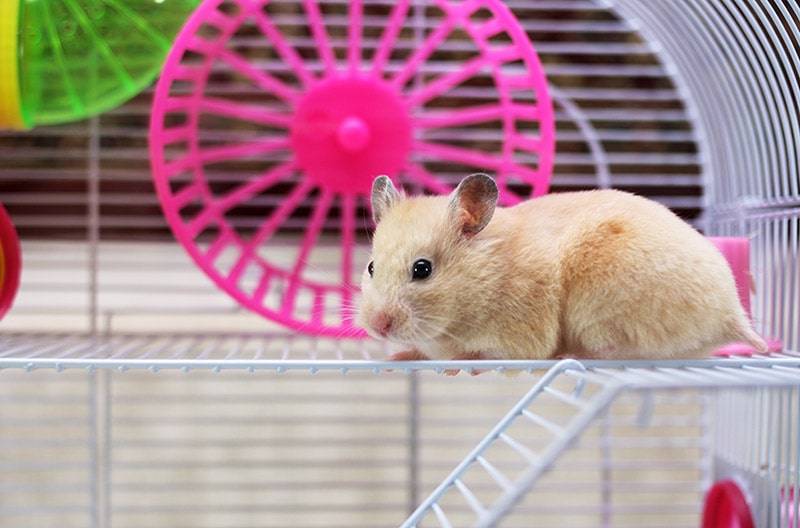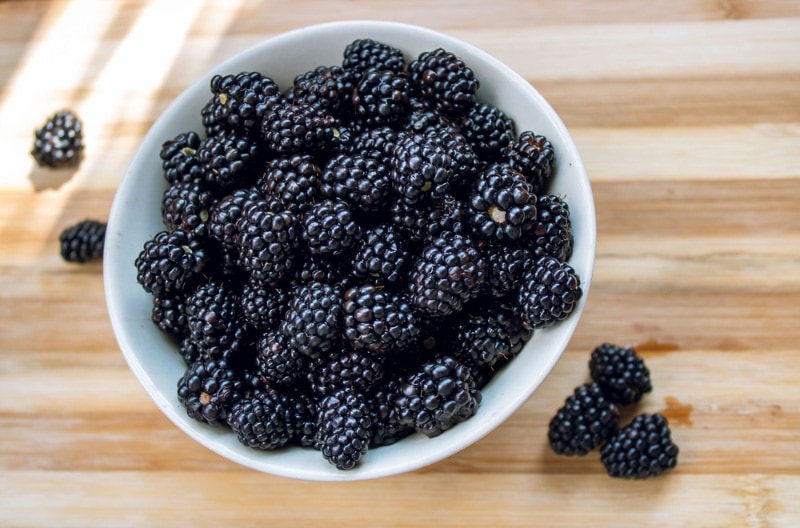Can Hamsters Eat Raisins? Vet-Reviewed Facts & FAQ
Updated on
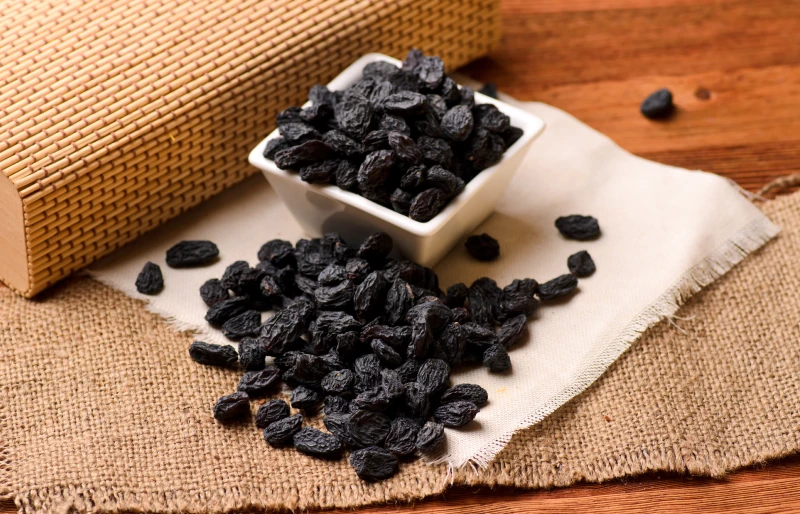
Raisins—those bite-sized wonders that have often found themselves as the unsung hero of our snack boxes or the unexpected star in our grandma’s muffins. Their wrinkled appearance may win no beauty contests, but their sweet burst of flavor? Unbeatable. As you revel in their yumminess, you might suddenly pause, raisin halfway to your mouth, as your pet hamster gives you “the look.” That look is their way of saying, “Hey, got any of that for me?” But can hamsters really eat raisins? The answer is yes, but only in moderation.
Hamsters and Their Dietary Needs
Hamsters need to have a varied diet. These little critters are omnivores, relishing in a range of foods, from grains and veggies and even animal protein. Every hamster owner knows the importance of a balanced meal for their furry friend, ensuring they get the right mix of hamster-specific pellets, the roughage of Timothy hay, and the nutritional boost from an array of vegetables with the occasional fruit. However, treats like raisins should be given sparingly.
Incorporating Raisins Into Your Hamster’s Diet
Raisins, when fed judiciously, can be a delightful treat for your hamster. It’s essential to be cautious, though. Introducing them in too large an amount or too frequently can lead to some not-so-pleasant consequences, like loose stools, lethargy, or even diarrhea. For a hamster, a raisin is a delicacy to be savored, not devoured.
Considering their petite size, even half a raisin can be a substantial bite for a hamster. If you’re thinking of integrating raisins into their diet, begin by providing just ¼-1/2 of one and observing their reaction. Once you’ve established that your hamster’s digestive system is in harmony with this new treat, you can occasionally offer it as a part of their fruit selection.
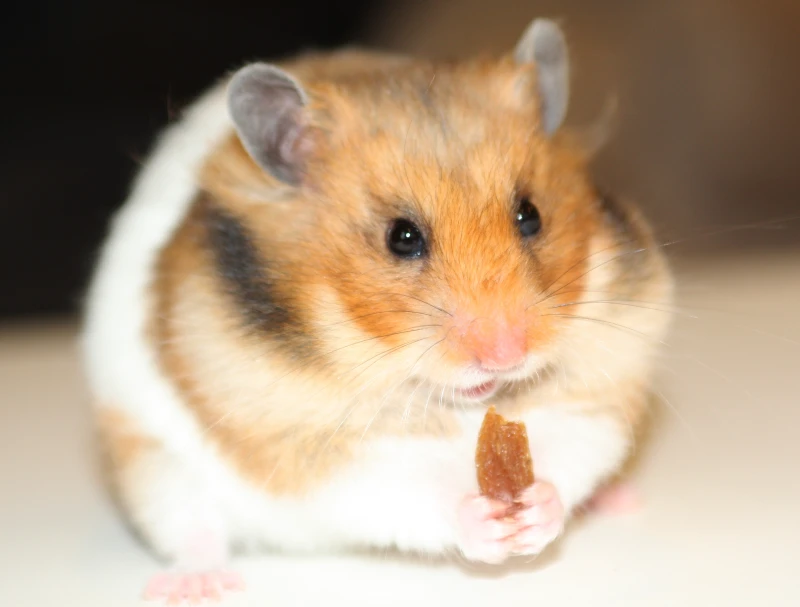
Benefits and Risks of Raisins for Hamsters
Raisins, like many fruits, contain essential vitamins and minerals beneficial for your hamster. These dried grapes can offer fiber, calcium, iron and some of the B vitamins, to help promote a healthy immune system and maintain proper cellular health.
However, all that glitters is not gold. Raisins also come with a fair share of sugar. Overindulging your hamster with these sweet treats can pave the way for digestive issues, such as diarrhea, and obesity with the potential onset of diabetes. Thus, moderation is the key to ensuring your hamster enjoys the benefits without succumbing to the risks.
You’ll also want to ensure that the sticky treat doesn’t cause cheek pouch issues. This is best done by only giving small amounts of raisins infrequently and monitoring your hamster carefully to make sure they aren’t hoarding raisins in their cheek pouches for too long.
Frequently Asked Questions
Beyond raisins, what other dried fruits can my hamster enjoy?
While raisins might be on the menu occasionally, other dried fruits generally aren’t. That is because dried fruit has higher concentrations of sugar and the stickiness can result in cheek pouch impactions and infections.
My hamster ate a whole raisin, should I be concerned?
If your hamster consumes a whole raisin occasionally, it’s not typically a cause for immediate concern. Consider contacting your veterinarian and monitoring your hamster for any signs of discomfort or health issues.
Do raisins have any hydrating benefits?
Raisins, being dried grapes, have lost most of their water content. So, they don’t provide notable hydration. For hydration, fresh veggies and, of course, fresh water are your best bets for your furry friend.
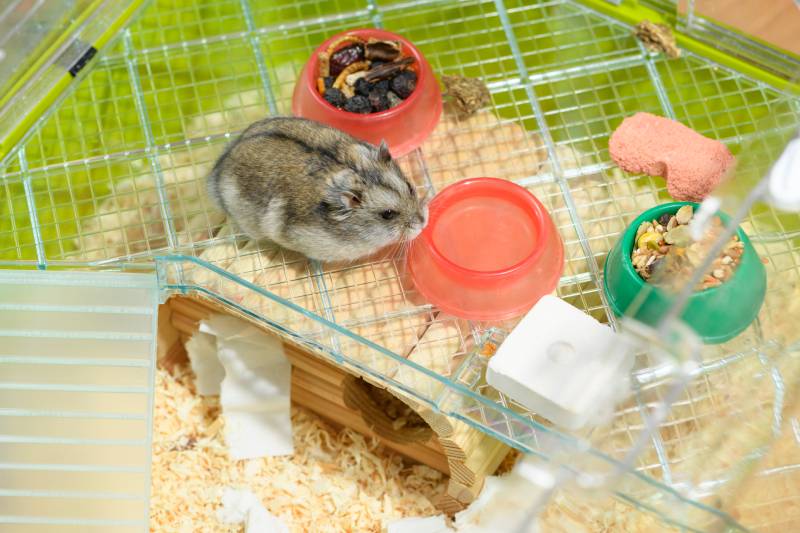
Can baby hamsters eat raisins?
It’s best to hold off on introducing raisins to baby hamsters. Their digestive systems are still developing and might not handle the sugar content well. Stick to hamster-specific feed and introduce fruits and other treats as they mature.
I’ve heard grapes are toxic to some pets. Are they safe for hamsters?
While grapes (and by extension, raisins) are toxic to pets like dogs, hamsters can safely consume them in moderation. However, always offer them in small amounts and monitor for any adverse reactions.
Can I use raisins as a training treat for my hamster?
While raisins can be a delightful treat, due to their sugar content, it’s better to use healthier, less sugary snacks for training purposes. Think along the lines of a small piece of carrot or cucumber.
Final Thoughts
Raisins, though not toxic, should be treated as an occasional indulgence for your hamster. Feed them with care, always observing how your hamster reacts. But most importantly, relish in the joy of sharing moments with your tiny companion, whether that’s during mealtime or play. After all, the bond you share with your hamster goes far beyond the treats you offer.
Featured Image Credit: Cheese78, Shutterstock


